- Abellán Hernández, Elisa
- Aguadé López, Laura
- Aguilar Conill, Carla
- Arca Míguez, Joan Manel
- Arquimbau Barceló, Àusies
- Bennett, Matthew
- Bertomeu Sancho, Paula
- Borrull Gras, Roger
- Brigidi, Serena
- Cárdenas Morell, Neus
- Claverias Fernández, Marina
- Casal Fité, Gemma
- Domingo Calduch, Yolanda
- Garriga Blasco, Rosa
- Giraldez Alvaro, Emilia
- Jàvega Bernad, Neus
- Lamora Giral, Oscar
- Llort Suárez, Antoniu
- Mirete Bara, Sílvia
- Motterle, Livia
- Muela Ribera, Joan
- Muñido Guillén, José Luis
- Navarro Lliberato, Jordi
- Pedret Risco, Montserrat
- Prades Hurtado, Mireia
- Puigbó Testagorda, Josep
- Rafecas Romeu, Àngel
- Ramírez Hita, Susana
- Riccò, Isabella
- Rosell Morales, Immaculada
- Sas Cruz, Simón
- Siles Ribera, Alexa
- Ventura Garcia, Laia
- Viña Mascarell, Llorenç
- Zuniga Valle, César

Degree in Social Work (ICESB institute, University of Barcelona) and a Master's in Ethics for Social Intervention (University of Girona, 2011). She has extensive training in mental health, intellectual disability, ethics and bioethics. She has been a social worker at Villablanca SAU since 1988 and has belonged to a local network in Tarragona specialized in care for mental disability since 2002. She has been an adjunct lecturer at Universitat Rovira i Virgili since 2002 and has also taught at several other institutions, including FORCEM, the Pere Tarrés Foundation, the Tripartita Foundation and Mas Carandell. She is a member and current secretary of the Board of Ethics of COTS (Social Workers Association of Catalonia).
Intervention areas: Mental health and intellectual disability; professional ethics.
elisa.abellan(ELIMINAR)@urv.cat

Degree in Social Work (University of Barcelona, 1989) and a qualification in Social Education (1995). She has conducted graduate studies in mental health and families (Central American University of Nicaragua, UCA Managua, 1996), international cooperation (1995, SETEM Catalonia), and systemic family therapy (Family Therapy Centre in Tarragona and Kin Family Therapy Centre in Barcelona, 2011). In the professional field she has worked in Nicaragua for three years as a social worker with street children, for eight years in Tarragona as a social worker and social educator in a public residential centre for children and adolescents; and for seventeen years as a social worker in a public centre for the care of children and adolescents in Reus (Tarragona). She is strongly committed to the social movements in Tarragona.
Intervention areas: Childhood at risk.
laura.aguade(ELIMINAR)@urv.cat

PhD in Economics and Business (URV, 2022) with a thesis on gender equality in the chemical industry and an international stay at the Ècole des Hautes Études en Sciencies Sociales de Paris (2018). Master in Migration and Social Mediation (URV, 2011) and degree in Political Science and Administration (UPF, 2008). She has worked in different positions in the local public administration in the social field, as well as in different associations and social movements. Her specialisation is gender in the workplace. Throughout her academic career she has participated in different research projects, including the following: migrant women in rural contexts (ARAFI), male carers (RecerCaixa), the linguistic rationalisation of work (Ministry of Economy and Competitiveness) and language skills in productivity and employability (RecerCaixa).
Lines of research: gender, work, migration and care
Teaching: Degree in Social Work and Master's Degree in Urban Anthropology, Migrations and Social Intervention
carla.aguilar(ELIMINAR)@urv.cat
Joan Manel Arca Míguez

Social worker (URV, 2001), social educator (2005) and social and cultural anthropologist (2004). Master's Degree in Innovation in Social and Educational Intervention (URV, 2020). Currently PhD student in Social Work (URV). Since 2007 he has been working as coordinator of individualised projects in the Individualised Support Plan (PSI) in mental health care and addictions at the Pere Mata Institute. He has developed different research and publications on urban anthropology and maritime anthropology at the Maritime Museum of Barcelona (2008-2011) and the Museum of History of Cambrils (2010-2011). He has worked in the field of child and adolescent care at: CRAE Casa Sant Josep (2002-2007); Salou Town Council (1999-2004), Vandellòs and l'Hospitalet de l'Infant Town Council (1998-2000); and in different private leisure education and environmental education entities (1996-2002); he has also worked as a teacher at the Tarragona Leisure School (1998-2005).
Intervention areas: Mental health and addictions; social and cultural anthropology; childhood and adolescence.
joanmanel.arca(ELIMINAR)@urv.cat

Diploma in Social Work (Universitat Rovira i Virgili, 2015). Postgraduate studies in International Cooperation in the Official Master's Degree in Development Cooperation, Public and NGDO Management (2016, University of Granada). He has 6 months of professional experience in India, directing the Vocational Training Project of the Fundació Vicenç Ferrer, working with young people with physical and intellectual disabilities. He also worked for four years in the field of elderly people, being the director of a residential centre for the last year. He has now returned to the field of disability, working in the Labour Integration Service of the CET of Fundació Onada.
Intervention areas: Elderly people; people with intellectual disabilities and mental health problems.
Area of interest: Social Work and Social Services.
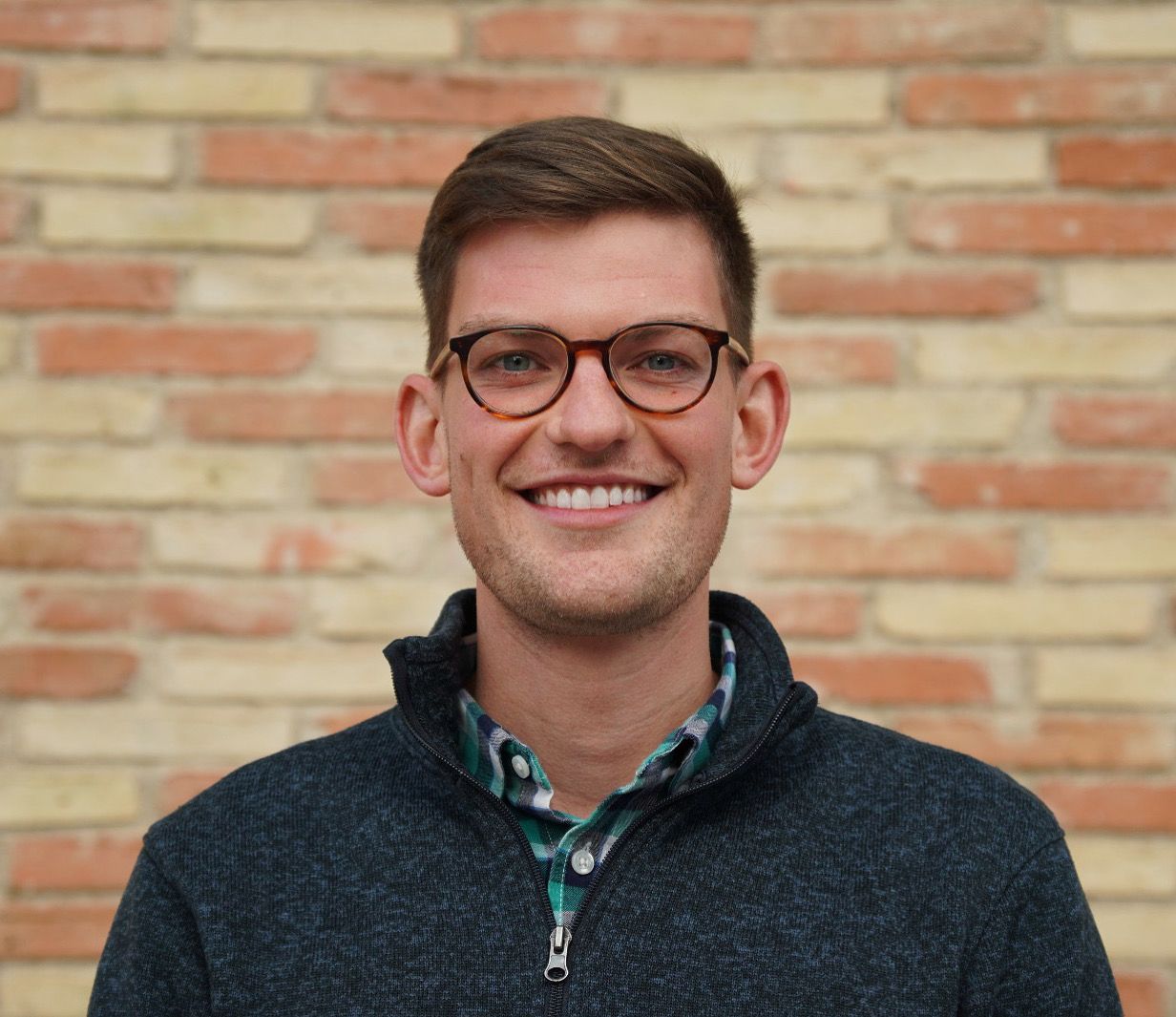
Social worker with a Master's degree in Public Health (UPF, 2020) and PhD student in Social Work (URV). He has worked as a health social worker and cultural mediator in the United States. Currently, he is practicing community and participatory research in social work and public health at IDIAP Jordi Gol. Since 2019, his research focuses on social iniquities in mental and emotional health, migration, racism, access to health and social services in the migratory context in Spain, and social cohesion and community identity construction. He has carried out R&D projects in collaboration with institutions such as the Pan American Health Organization, the Barcelona City Council and the Barcelona Public Health Agency, among others. He is currently working on his doctoral thesis within the framework of the project 'La salut mental en adolescents i joves de Catalunya des d'una perspectiva de gènere: un estudi participatiu de base poblacional i qualitatiu', funded by the Carlos III Health Institute.
Research areas: Mental and emotional health, migration, racism, social and health services, social cohesion, community and participatory research.
Teaching: Degree in Social Work.
Areas of interest: Social Work and Social Services.
matthewedward.bennett(ELIMINAR)@urv.cat
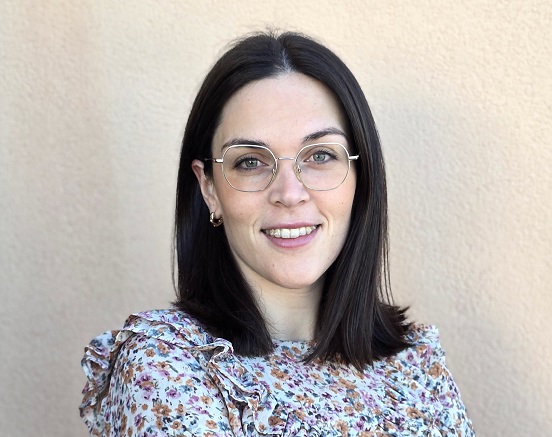
Graduate in Social Work from the Universitat Rovira i Virgili, Master in Direction, Management and Intervention in Social Services from the Universitat Ramon Llull and Postgraduate in Corporate Social Responsibility from the Barcelona Business School. She has more than two years of experience in the field of ageing, and since 2019 she has developed her professional career in the Public Administration as a social worker in Basic Social Services and referent on gender violence. Passionate about social entrepreneurship, in 2019 she participated in the Explorer programme 'Jóvenes con Ideas', having been selected in the Woman Explorer Award category as the best project led by a woman in the Tarragona Space with 'Keep In Touch', a project that also received recognition from the Tarragona Provincial Council. In 2022, after pivoting the initial idea, she founded CuidaPro, a home care agency for elderly and dependent people specialised in rural areas affected by depopulation and based in Terres de l'Ebre (Tarragona). In the field of teaching and training, she has been a trainer in the "Vivir mejor en casa" programme, in the Sociedad Española de Geriatría y Gerontología. Actualmente. She is currently a member of the general board of the Catalan College of Social Work.
Intervention areas: Social Entrepreneurship, Basic Social Services.
Teaching: Degree in Social Work.
Area of interest: Social Work and Social Services.
paula.bertomeu(ELIMINAR)@urv.cat ![]()
Roger Borrull Gras

Diploma in Social Work (Universitat Rovira i Virgili, 1999). He is completing his training in competences in public procurement for third sector entities. Since 2008 he has been a member of the Management team of the Social area of the Santa Tecla Health and Social Network, as head of the Home Care Service (Public and Private) and Director of the Casa Sant Josep Foundation in Tarragona, an entity dedicated to the protection of children through the management of Residential Centres and Family Shelters.
Intervention areas: Children at risk; elderly people; people with dependency.
Area of interest: Social Work and Social Services
roger.borrull(ELIMINAR)@urv.cat

PhD in Anthropology of Medicine (URV, 2009), for which her thesis on migration and mental health received the honorary mention of the Marqués de Lozoya Award for Cultural Research (Spain, 2010), and a degree in Pedagogy from the Università degli Studi di Genova in Italy (2001). She assistant professor at the Sant Pau Nursing School of the Autonomous University of Barcelona. She is a member of the URV's Medical Anthropology Research Centre (MARC) and a co-founder of MATER (observatory of contemporary maternity and paternity research group).
Research areas: Migration and mental health; experiences and institutional narratives on mental health care; gender, health, body and emotions; maternity studies: labour medicalization, pregnancy, nursing, breastfeeding and obstretic violence.
serena.brigidi1(ELIMINAR)@urv.cat ![]()
![]()

She has been working as a social worker with people with disabilities at Villablanca Serveis Assistencials S.A. since 2008. In this field she also worked at a residence and day care centre for people with special needs (Marinada, Grup Pere Mata) from 2000 to 2008 and for Baix Camp Regional Council (1999). She holds a degree in Labour Sciences from the UOC (Open University of Catalonia) (2010) and a degree in Social Work from the Universitat de Barcelona (1997). She has ample specialist training, having earned a Master's in Psychosocial Rehabilitation in Mental Health from the Autonomous University of Barcelona (UAB) (2008) and graduate studies in Primary Care in Social Services (UAB, 1998) and Knowledge and Attention in Intellectual Disability (UAB) (1999).
Intervention areas: Specialised care services for intellectual disability and/or mental health.
neus.cardenas(ELIMINAR)@urv.cat ![]()

Social Worker, specialized in social mentoring. Master's Degree in Citizenship and Human Rights: Ethics and Politics (UB). Trained in management and direction of associations and non-profit organizations. PhD. student in care ethics and inclusive social mentoring. She focuses her research on tools to ensure the sustainability of human life, social mentoring as an innovative tool for social transformation. She has worked in the area of socio-educational and labour orientation for young people. She is currently working on the coordination of mentoring projects at the Kilómetro Zero Association in Tarragona.
Intervention areas: Employment guidance; childhood and adolescence; social mentoring.
marina.claverias(ELIMINAR)@urv.cat

Graduate in Social and Cultural Anthropology from the URV, DEA in Urban Anthropology from the URV and Graduate in Geography and History from the UdL. She has participated in several research projects on agrarian development and social change in the rural world, social movements and peasant organisations in response to the mandates of the EU's Common Agricultural Policy, as well as the evolution of agribusiness and its links with international migratory movements. Another area of interest to which she is linked is ethnological heritage. In the professional world she works in international cooperation, rural development and mountain areas. Since 2015 she is a member of the Consell de l'Etnologia Catalana of the Direcció General de Cultura Popular i Associacionisme Cultural – Departament de Cultura de la Generalitat de Catalunya. And since 2019 she is a member of the Governing Board of the Institut Català Internacional per la Pau (ICIP).
Research areas: economic anthropology, rural development, social change, deagrarianisation, agroecology, food sovereignty, agricultural work, international migration, ethnological heritage.
Areas of interest: Social and Cultural Anthropology

PhD in Social Work (URV, 2024), with a thesis on the digital transformation of Basic Social Services in Catalonia. From 2002 to 2024 she has been working in the field of mental health. Associate lecturer at the URV since 2021. She currently works at the i2CAT Foundation (Research and Innovation Center), in the Department of DST (Digital Society Technologies). Diploma in Social Work (UDL, 2001); Postgraduate in Social Intervention in the field of Mental Health (Universitat Ramon Llull, 2003); Master's Degree in Social Work in Health (UOC, 2016) and Master's Degree in Innovation in Social and Educational Intervention (URV, 2020).
Lines of research: mental health, social services and technological innovation in social work.
Teaching areas: Master in Innovation in Social and Educational Intervention and Master in Social Work in Health Care (UV).
Area of interest: Social Work and Social Services.
yolanda.domingo(ELIMINAR)@urv.cat ![]()
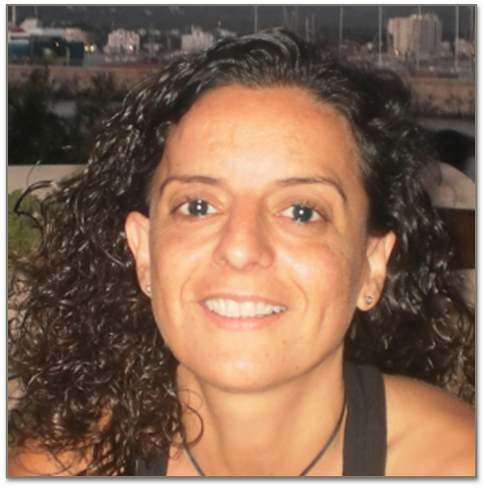
Graduate in Social Work, Master's Degree in Family Therapy from the Universitat Autònoma de Barcelona and Master's Degree in Systemic Coaching. Accredited as a Family Therapist by the Spanish Federation of Therapists. Member of the Catalan Society of Family Therapy. Trained in Mindfulness by the Center for Mindfulness, University of Massachusetts, and in Team Supervision. She has been an associate lecturer in Social Work at different universities in Catalonia from 2006 to 2016. She has been the technical coordinator and teacher of the Postgraduate Diploma in Supervision in the field of Care for People at the URV. Between 2004 and 2020 she worked as director of psychosocial services in various public administration services for women and their children who have suffered situations of male violence.
From 2011 to the present, she has been working as a supervisor of care teams in different areas of intervention. She is also a supervisor of coordinators and management of services and entities. She is a member of the TSCAT supervision committee and has been its coordinator for 3 years.
Intervention areas: Supervisor in the field of personal care. Family and individual care for people with psychosocial vulnerability.
Teaching areas: Master's Degree in Innovation in Social and Educational Intervention.
Area of interest: Social Work and Social Services.
rosa.garriga(ELIMINAR)@urv.cat

Diploma in Social Work (1996, EU Santo Fructuoso de Tarragona) and graduate in Social Work (2011, UdL); Master in Intervention and Management of Social Services (2005, UDC2) and Master in Innovation in Social and Educational Intervention (2022, URV), with postgraduate studies in Family Violence: childhood, couple and elderly people (2008, UB) and Resolution of public conflicts and community mediation (2015, UdG). From 1999 to 2016 she has worked in different local administrations in basic social services, elderly care, training projects and community intervention in care for children and adolescents, women, the elderly and people at risk of social exclusion. Since 2017, she has been working at the lnstitut municipal de serveis socials de Tarragona (IMSST) as a social worker, and as a member of different commissions and working groups. She is a member of the IMSST's Ethics Reflection Space and of the BSS working group of the Tarragona College of Social Work.
emilia.giraldez(ELIMINAR)@urv.cat
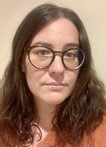
Graduate in History (URV, 2006) and Graduate in Social and Cultural Anthropology (URV, 2009) and Master in Urban Anthropology (URV, 2011). She is currently finishing her doctoral thesis in the PhD programme in Anthropology and Communication at the URV on the management of death among Moroccans in the province of Tarragona, with a FIN-AGAUR pre-doctoral grant. Since 2014 her research has been focused on the anthropology of death; the experiences of death in the context of migration; the processes of repatriation of the deceased to the country of origin and the construction of new rituals, solidarity and belonging linked to death by migrants. She has collaborated with the Directorate of Religious Affairs of the Generalitat de Catalunya in the mapping of religions in Catalonia. In recent years she has carried out documentation and cataloguing tasks in ethnology museums.
Research areas: anthropology of death, death and migrations, Islam, rituals, identities.
Teaching area: Degree in Social Work.
Area of interest: Social Anthropology.
marianeus.javega(ELIMINAR)@urv.cat
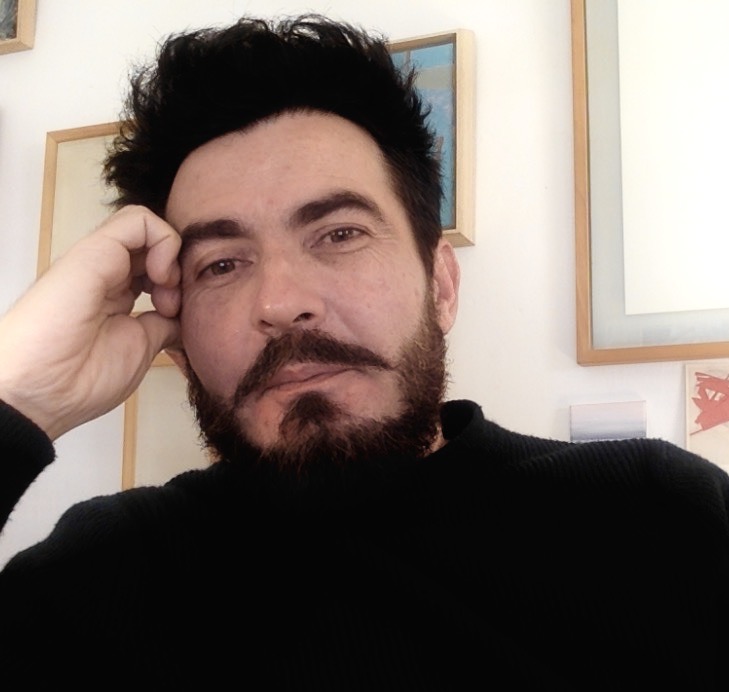
PhD in Social Anthropology from the Universitat Rovira i Virgili, Master in Medical Anthropology and Global Health, and Graduate in Social and Cultural Anthropology from the Universidad Nacional de Educación a Distancia. Carmelo Lisón Anthropology Prize 2018 awarded by the Lisón-Donald Foundation. Ramón Acín Visual Arts Research Grant 2013 awarded by the Provincial Council of Huesca. Interested in the anthropology of food and care processes in the field of psychiatry, his doctoral thesis focuses on the sociocultural, nosographic and epidemiological issues surrounding Pica disorder. He is currently a lecturer in the Department of Anthropology, Philosophy and Social Work at the Universitat Rovira i Virgili.
Research areas: mental health; care processes; anthropology of food; art.
Teaching areas: Master's degree in Urban Anthropology, Migrations and Social Intervention.
Area of ingterest: Social Anthropology; Art.
oscarconstantino.lamora(ELIMINAR)@urv.cat

He is an anthropologist and social worker. He recevied his Masters in Medical Anthropology and Doctorate in Anthropology from the Rovira i Virgili University (2016). He is specialized in ethnographic research, qualitative research linked to participatory processes, advocacy strategies, peer support and production of documentaries related to the use of psychoactive substances. Since 2008 he has been coordinator of collective health projects and reduction of damages and risks to the Addiction and Mental Health Service of the Hospital Sant Joan de Reus. He is also part of the research and social intervention team at Episteme and is linked to different activist movements at the local and international level.
antoni.llort(ELIMINAR)@urv.cat

Graduate in Social Work from the URV, and University Specialist in Music Therapy (UPV, 1999). She also has a postgraduate degree in Direction and Management of social-health centres and care centres for people in a situation of dependency (FUB, 2012). She has extensive training in elderly people, health, leadership and team management. Since 2003 she has been working in the field of health, elderly people and dependency at the Vila-seca residence of the Mutuam Group. Between 2003 and 2011 she worked as a social worker and since then, she has been managing this service. She has taught at the Red Cross and FRADA, among others, and has been a lecturer at the URV since 2022.
Research areas: health; elderly people; people with dependency.
Areas of interest: social work and social services.
silvia.mirete(ELIMINAR)@urv.cat

Livia holds a degree in Philosophy (Universitá di Bologna, Italy), a Master's degree in Anthropology and Ethnography (Universitat de Barcelona) and a PhD in Advanced Studies in Social Anthropology (Universitat de Barcelona). She has worked as a postdoctoral researcher at the Centro de Investigaciones y Estudios de Género of the Universidad Nacional Autónoma de México and at the Sociology Department of the Universitat de Barcelona. She is currently a teaching collaborator at the Universitat Oberta de Catalunya. Her fields of research focus on the relationship between sexuality, gender, identity and social control from the application of the paradigm of intersectionality. She is coordinator of the Grup de Recerca en Antropologia del Cos i la Sexualitat (GRACS-ICA) and member of the Latin American Network of Interdisciplinary Gender Studies (Yale University-UNAM) and of the Grup de Recerca en Gènere, Identitat i Diversitat (GENIO-UB), where she currently coordinates the axis "Diversitat sexo-genèrica i estudis LGTBI+". She has published the book I tènia cor. Treball sexual, violències i resistències with Bellaterra Editors.
Research interests: gender and sexuality; public space and social control; gender exclusion and gender diversity; feminisms and social movements; urban culture and youth.
Teaching areas: Degree in Anthropology and Human Evolution; Master's Degree in Urban Anthropology, Migrations and Social Intervention.
Area of interest: Social anthropology
livia.motterle(ELIMINAR)@urv.cat

Master's in Medical Anthropology from Brunel University London and a PhD from the Autonomous University of Barcelona (UAB). He began his research in Medical Anthropology in the field of international health in Tanzania, conducting a study on care processes and social vulnerability related to children with malaria. He currently participates in numerous research projects, courses, workshops and consultancies with PASS-International, a non-profit organization dedicated to socio-anthropological research in international health projects, of which he is a founding member and researcher. He is a member of MARC (Medical Anthropology Research Centre, URV).
Research areas: Assessment of global health projects; social vulnerability; social determinants of health at the local level.

Diploma in Social Work (EUTS-URV, 1997). Postgraduate studies in Stimulative Animation for the Elderly, Mental Health and Disabilities (URL, 1999), in Psychogeriatrics (UAB, 2000), and in Direction and Management of Residences and Services for the Elderly (URV, 2008). From 1997 to 2005, he has worked in different areas of social intervention; from 2006 to 2017, as a social worker and technical director of day centers and residences for the elderly of the social area of the Santa Tecla Network. From 2018 to the present, he has been working as a health social worker in the health area of the Network itself, specifically in socio-health care and primary health care. She is also a member of the Health Care Ethics Committee of this organization.
Areas of intervention: health; social and health care; primary health care; elderly people; people with dependency; management and direction of social services and health care ethics.
Area of interest: Social Work and Social Services.
joseluis.munido(ELIMINAR)@urv.cat

Social worker, social educator and pedagogue with extensive graduate training in social management and intervention. He has worked in primary care public social services in Tarragona (1990-1995), Salou (1996-2004), and Valls (2011-2012). He was the director of the Tarragona offices of ADIGSA, a public company that manages the public social housing of the Catalan Government (2004-2011). Social worker and coordinator of the EAIA Alt Camp-Conca de Barberà (2012-2019). Technical director of the SIS-Vila-seca (2019-2024). He currently works as a social worker at ONA-CDIAP and is a referent for social action projects at Fundació En Xarxa. He is one of the founding members of the Fundació Casal Amic of which he was president (1995-2017). He has been an associate lecturer at the URV since 2000. He has also taught on the INSERLAB programme at the Escola Lliure El Sol since 2009 and has been a teacher at the Escola de l'Esplai de Tarragona (1994-2009). He is a trainer of INSERLAB of the URV Foundation and in the field of resilience and applied optimism. He is the author of several articles and books on the subject. PhD student in Social Work.
Intervention areas: Primary care; childhood and adolescence; resilience.
jordi.navarro(ELIMINAR)@urv.cat

Graduate in Social Work (URV, 2003) and Master in Innovation in Social and Educational Intervention (URV, 2021). She has 18 years of experience as a social worker in the educational field, in different psycho-pedagogical counselling teams in Terres de l'Ebre. In continuous training, she stands out for her training related to school bullying and the prevention and detection of violence. She is a trainer of the Innovation Programme #Aquíproubullying of the Department of Education (Generalitat de Catalunya) aimed at teachers of educational centres. She is a member of the Editorial Board of the Journal of Social Work of the Official College of Social Work of Catalonia, and a member of the Educational TS Working Group as part of the College’s Children's Commission.
Intervention areas: Education; childhood at risk and vulnerability.
Area of interest: social work and social services.
montserrat.pedret(ELIMINAR)@urv.cat
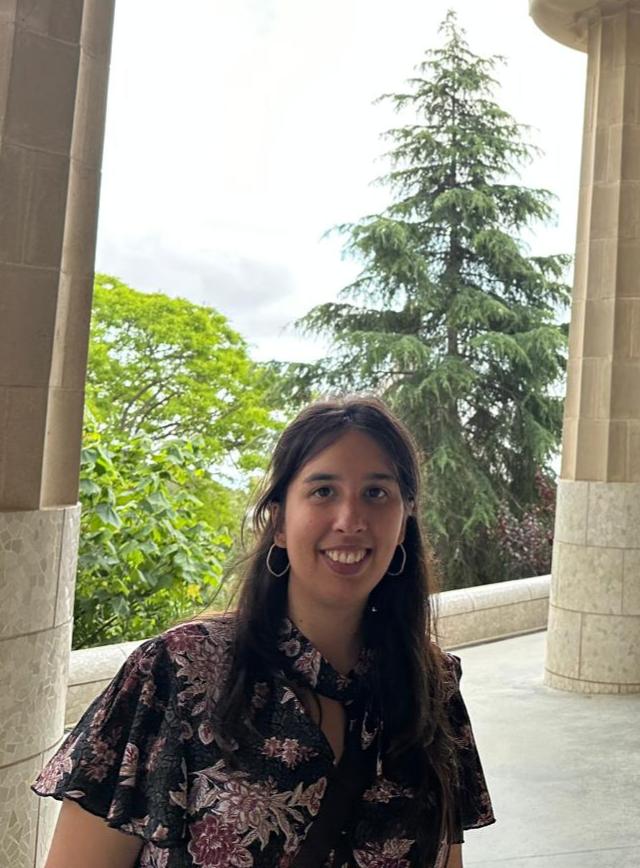
Graduate in Social Work from the Universitat Rovira i Virgili (2018); Master's Degree in Innovation in Social and Educational Intervention (URV, 2019). Since 2019 she has been working at Reus City Council, where she currently develops her professional activity as a social worker in the Department of Social Welfare. She has also worked in the community and in a residential centre in the municipality of Reus.
Areas of intervention: Social Services in the municipal sphere.
Knowledge area: Social Work and Social Services.
mireia.prades(ELIMINAR)@urv.cat

Anthropologist, PhD in Urban Anthropology (2023) and Master in Urban Anthropology, Migrations and Social Intervention (2018). His interest focuses on the production of space in areas of urban transformation from an ethnographic perspective. She has analysed the dynamics of digital nomadism in Barcelona in coworking spaces, the socio-cultural impact of gentrification processes on forms of neighbourhood relations and organisation, and the effects of urban policies of attracting people and economic flows. His current research is an asset in the anthropological analysis of urban transformation, especially in terms of entrepreneurial policies in the deployment of technology projects in urban contexts. For example, technology hubs. In the professional field, he has experience in social intervention as a technician in the field of urban rehabilitation of the Neighbourhood Plan of the city of Barcelona and the Metropolitan Housing Consortium.
Research areas: globalisation, technology and urban space.
josep.puigbo(ELIMINAR)@urv.cat
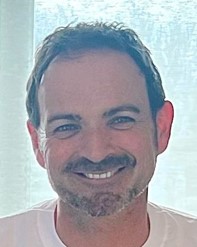
Graduate in Social Work (URV) and Graduate in Social Work (UNED), with postgraduate studies related to the public management of local Social Services, with the managerial function in Social Services and with the direction and management of residences and services for the elderly. He has worked as a social worker in basic social care teams, and later as head of the Social Welfare Department of the Baix Penedès Regional Council. He has also taught at the College of Social Workers of Catalonia.
angel.rafecas(ELIMINAR)@urv.cat

PhD in Social and Cultural Anthropology by the URV, specialising in Anthropology of Medicine (2003). Degree in Social Anthropology (U. Nacional de Misiones, Argentina, 1994). Member of the Medical Anthropology Research Center, and the Union of Scientists Committed to Society and Nature in Latin America. She works in the field of medical anthropology and her most important research has focused on the health conditions of different populations: gypsies (Spain and France), and Quechua indigenous people (Bolivia). She is currently researching the effects of pollution on the health of various populations in the Peruvian Amazon. She has been doing fieldwork in Latin America for more than 20 years. Among her most relevant books are: Salud intercultural. Crítica y problematización a partir del contexto boliviano (2011); Donde el viento llega cansado. Sistemas y prácticas de salud de la ciudad de Potosí (2005); Calidad de atención en salud. Prácticas y representaciones sociales de las poblaciones quechuas y aymaras del altiplano boliviano (2009) and Cuando la enfermedad se silencia. Sida y toxicidad en el oriente boliviano (2016).
Research areas: health conditions of diverse Latin American populations.
susana.ramirez(ELIMINAR)@urv.cat

PhD in Anthropology (URV,2017); Master in Cultural Anthropology and Ethnology (2011) and Bachelor's degree in Anthropological Science (University of Bologna). Between 2014 and 2017, she was a predoctoral fellow at the URV, and in 2016 she spent five months at the University of Oxford. Her doctoral thesis focuses on therapeutic pluralism, delving into folk medicine, alternative medicines and New Age therapies. Since 2017, she has worked on various international projects (Horizon 2020 and Erasmus+) at the URV and the Universitat Oberta de Catalunya (UOC), addressing issues such as ageing, co-creation and participatory methodology, citizen science, digitalisation and education. Between 2022 and 2023, she coordinated the AGORAge: Ageing in a Caring Community project (pilot of the H2020-COESO: Connecting Research and Society project), focused on community care with a gender approach, in a nursing home and a top-down cohousing. She is currently involved in the NutriAge project, which focuses on research into ageing and nutrition, and the AlterCare project, which investigates housing alternatives for older adults. Since March 2024, she has served as the president of ITA. Associació D'Antropologia.
Research areas: Folk medicine; therapeutic pluralism; complementary and alternative medicines; New Age; ageing; community care; gender; health and technology; health education.
isabella.ricco(ELIMINAR)@urv.cat
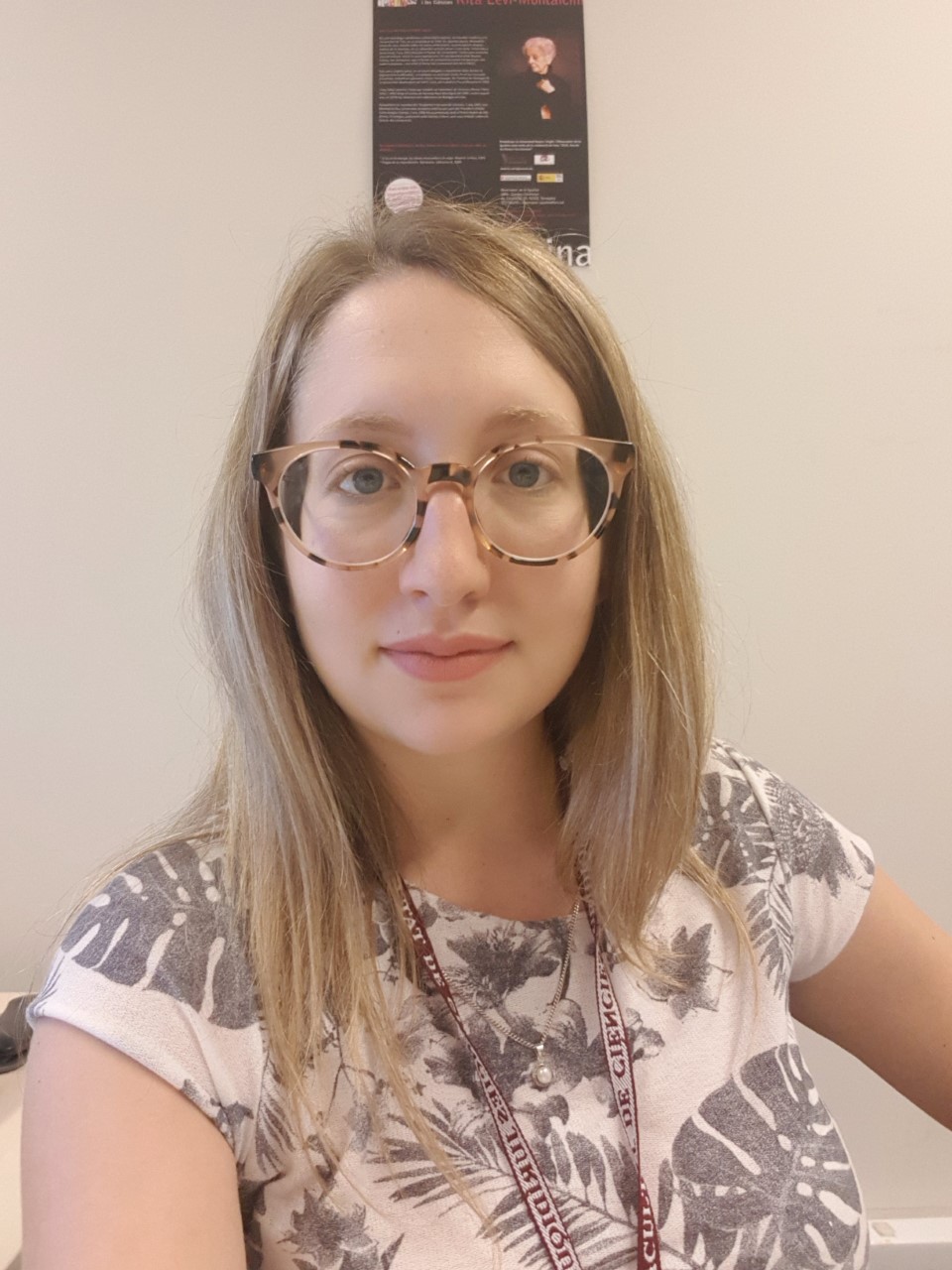
Graduate in Social Work (URV, 2018); Master's Degree in Innovation in Social and Educational Intervention (URV, 2020). She has worked as a research support at the URV Chair of Social Inclusion with a grant (R+D+i) from the Spanish Ministry of Science and Research (2019-2021). From 2021 onwards, she has been the head of the Social and Labour Inclusion Area at DINCAT (Federació catalana de discapacitat intel·lectual de Catalunya). In addition, as a member of the research group Social Bussiness Research Lab, she has participated and collaborated in several ESF+ and Erasmus+ projects (INSERLAB-URV - IN-WORK and InteLACmarket). She is co-author of the publication Políticas de Inserción Sociolaboral (2019) among others on innovative methodologies for the social and labour insertion of people with intellectual disabilities.
Research areas: innovative methodologies in socio-occupational integration, intellectual disability.
Teaching area: Degree in Social Work.
Areas of interest: Social Work and Social Services.
immaculada.rosell(ELIMINAR)@urv.cat

Graduate in Social Work (Universitat Rovira i Virgili, 2008). As a professional, he began working in the field of health in 1998, in the Red Sanitaria y Social Santa Tecla. From 2010 to the present, he has held the position of health social worker at the acute hospital of Santa Tecla. With his extensive training in the field of health, he is a member of various working groups and commissions in the Social and Health field. Since 2010, he has been a member of the Healthcare Ethics Committee of the Santa Tecla Network. Since 2017, he is a member of the Territorial Board of the Official College of Social Work of the Tarragona Delegation, and since 2018, its Health Group referent.
Intervention areas: health, hospital care, elderly people, people in situations of dependency, children at risk.
Teaching: Degree in Social Work.
Areas if interest: Social Work and Health.
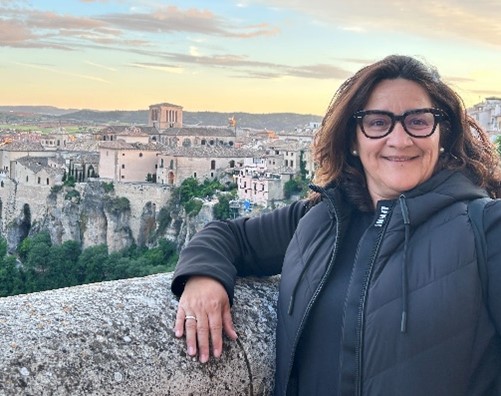
Degree in Labour Sciences, URV (2007) and Diploma in Social Work, URV (2001). Extensive training in male violence, support for penal execution and sexual victimisation of children, young people and adolescents. Since 2008 she has been working in the field of penal execution, in the Technical Penal Advice Team (EATP) of the Barnahus Integrated Unit (Tarragona), Department of Justice. Previously she worked as a social worker in the Immigration Department of the Red Cross Tarragona. Her teaching experience was developped in Cruz Roja Tarragona, Aula Centro de Formación and Centro de Estudios Jurídicos y Formación Especializada.
Intervention areas: Immigration and Forensic Social Work.
Teaching: Master's Degree in Innovation in Social and Educational Intervention.
Areas of interest: Social Work, Social Services and Forensic Social Work.

PhD in Anthropology and Communication and Master's degree in Medical Anthropology and International Health from the Universitat Rovira i Virgili (URV). Degree in Social and Cultural Anthropology and Psychology from the University of Barcelona. She is working in international and national research projects. Her main research has been focused on health, embodied risks, gender and social inequities, as well as participative and arts-based methodologies, by exploring the ways different social groups experience and manage health and environmental risks, the articulations between gender and care, and sexual and reproductive rights. She has been a postdoctoral researcher in the CareNet group (IN3 - UOC), and is currently a UKRI Guarantee Fellow (following a Marie Curie Action) at the Center for Biomedicine, Self and Society (University of Edinburgh).
Research areas: health, disasters, social inequalities, risk, sexual and reproductive health.
laia.ventura(ELIMINAR)@urv.cat

Diploma in Social Work (URV, 2017); Master's Degree in Innovation in Social and Educational Intervention (URV, 2021). She has collaborated in different research projects, such as, for example, Hombres cuidadores. Challenges and opportunities to reduce gender inequalities and address the needs of care (URV-UAB, 2016) or, recently, in the study of the social impact of COVID-19 in Tarragona (URV- IMSST, 2020). In the professional field, he has worked in the management of social, community, intercultural and volunteering projects in Spain for the Fundació "La Caixa". He has also worked as a social worker in the management of social mentoring projects and in the field of employment guidance and employment at the City Council of Tarragona. Currently, he is carrying out project coordination tasks for the Kilómetro Cero Association. She is also a member of the Board of Directors and of the communication, dissemination and fundraising commission of the same organisation.
Intervention areas: Community intervention and interculturality; childhood and youth; social mentoring; third sector; labour and employment guidance.
Areas of interest: Social Work and Social Services.
llorenc.vina(ELIMINAR)@urv.cat
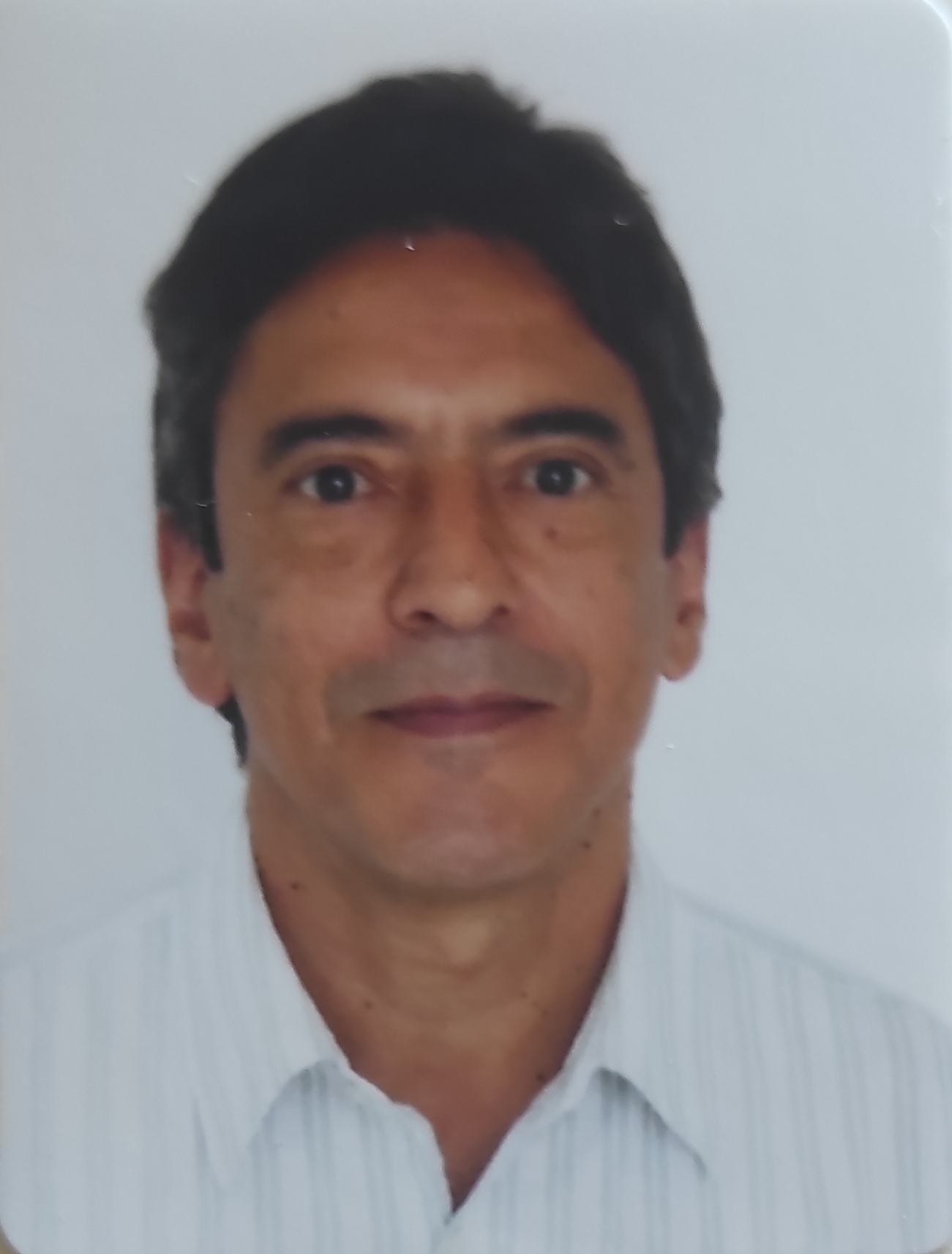
PhD in Ethno-anthropological Research Methodologies (Università degli Studi di Siena, Università deli Studi di Cagliari and Università degli Studi di Perugia) with the thesis La coexistencia de sistemas médicos en Honduras ( 1996), supervised by Prof. Tullio Seppilli. Previously, he obtained a degree in Modern Literature with the thesis La Revolución mexicana y los Mayas de Yucatán ( 1991), (cum laude), supervised by Prof. Tullio Seppilli. He was a lecturer in Cultural Anthropology in the Degree in Nursing at the Faculty of Medicine and Surgery, (Università degli Studi di Perugia) and researcher at the Dipartimento Uomo e Territorio of the same university. He is currently a research lecturer in the Department of Anthropology, Philosophy and Social Work at the Universitat Rovira i Virgili.
Research areas: medical anthropology, ethnography.
Areas of interest: medical systems, therapeutic itineraries, gender and health, drugs and risk perception, immigration, alcohol and age classes.
